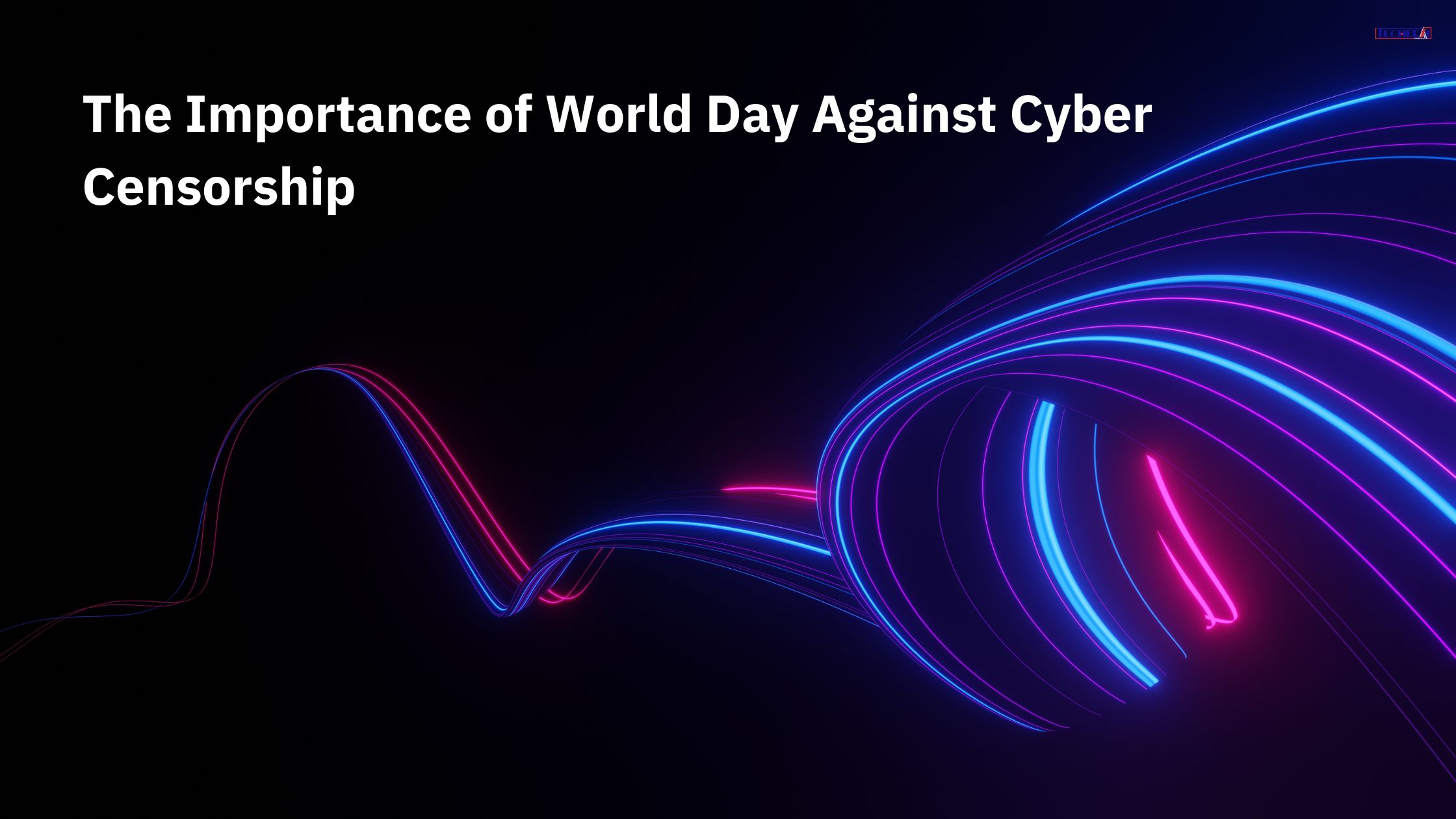The internet provides a worldwide forum for expression, communication, and information sharing in the current digital era. But these advantages are accompanied by the risk of cybercensorship, which goes against these core ideas. Every year on March 12, we mark World Day Against Cyber Censorship, which emphasizes how critical it is to defend online liberties and fight online censorship.
Understanding Cyber Censorship
What is Cyber Censorship?
The term “cyber censorship” describes the manipulation or repression of data that is shared online. In order to limit access or sway public opinion, it entails the filtering, banning, or manipulating of internet content.
Forms of Cyber Censorship
Cyber censorship can take many different forms, such as laws imposed by the government, internet service providers’ corporate censorship, social media platforms, and self-censorship by people or groups.
The Significance of World Day Against Cyber Censorship
Raising Awareness
An important part of bringing attention to the growing problem of internet censorship is World Day Against Cyber Censorship. By bringing attention to this matter, it promotes discussion and action to safeguard digital liberties.
Promoting Freedom of Expression
An important part of bringing attention to the growing problem of internet censorship is World Day Against Cyber Censorship. By bringing attention to this matter, it promotes discussion and action to safeguard digital liberties.
Advocating for Digital Rights
In an era dominated by digital advancements shaping our everyday existence, preserving digital rights emerges as a paramount concern. World Day Against Cyber Censorship underscores the importance of safeguarding essential liberties, including freedom of expression, privacy rights, and unfettered access to information.
The Impact of Cyber Censorship
Limitations on Information Access
The shackles of cyber censorship hinder the unfettered exchange of ideas and knowledge, constraining access to vital information. This obstruction complicates the pursuit of diverse perspectives and inhibits informed decision-making processes.
Suppression of Dissent
Cyber censorship is a common tactic used by governments and authoritarian regimes to quell political opposition and stifle dissent. They hope to keep control over their populace by limiting the information that is available.
Threats to Privacy
Due to its ability to facilitate internet activity tracking and surveillance, cyber censorship can present serious risks to online privacy. It compromises people’s right to privacy and puts them in danger of power abuses.
Initiatives on World Day Against Cyber Censorship
Online Campaigns and Activism
In an effort to increase awareness and mobilize action against censorship, World Day Against Cyber Censorship ignites online campaigns and advocacy projects. The voices of those promoting digital rights are amplified via social media campaigns, online petitions, and digital protests.
Educational Programs and Workshops
Public awareness of the risks of cyber censorship is raised through educational campaigns and workshops, which also provide people with the tools they need to defend their online liberties. These courses give participants the skills and information they need to securely traverse the digital world.
How Individuals Can Contribute
Spreading Awareness on Social Media
Using social media to raise awareness, individuals can support the cause. Using hashtags associated with World Day Against Cyber Censorship, participating in debates, and sharing educational content all help to spread the word and reach more people.
Supporting Organizations and Initiatives
One more thing people may do to help fight cyber censorship is to support groups and projects that work in this area. Contributions to advocacy organizations, event participation, and time and resource volunteering all help to advance the cause of internet freedom protection.
Government’s Role in Combating Cyber Censorship
Legislation and Policies
Governments that pass and uphold laws safeguarding digital rights are essential in the fight against cyber censorship. Strong laws guarantee that people have the legal foundation necessary to oppose censorship and hold those who engage in it accountable.
International Cooperation
Addressing the worldwide issues brought on by internet censorship requires international cooperation. Governments can create plans and regulations to fight cross-border censorship by working with other countries and international bodies.
Future Outlook
Emerging Challenges
The problems caused by cyber censorship keep changing as new digital platforms and technological advancements take place. In the struggle for internet freedom, emerging technologies like blockchain and artificial intelligence bring both potential and hazards.
Potential Solutions
Cyber censorship must be addressed by a multifaceted strategy that includes grassroots activity, government intervention, and technology innovation. A more inclusive and open internet can be achieved by investing in censorship-resistant technology, advancing digital literacy, and cultivating an online freedom culture.
Conclusion
The annual fight to protect online liberties in the face of growing restrictions is brought to light on World Day Against Cyber restrictions. We can endeavor towards a future in which the internet continues to be a free and open environment for everyone by increasing awareness, advocating, and fostering collaboration.

